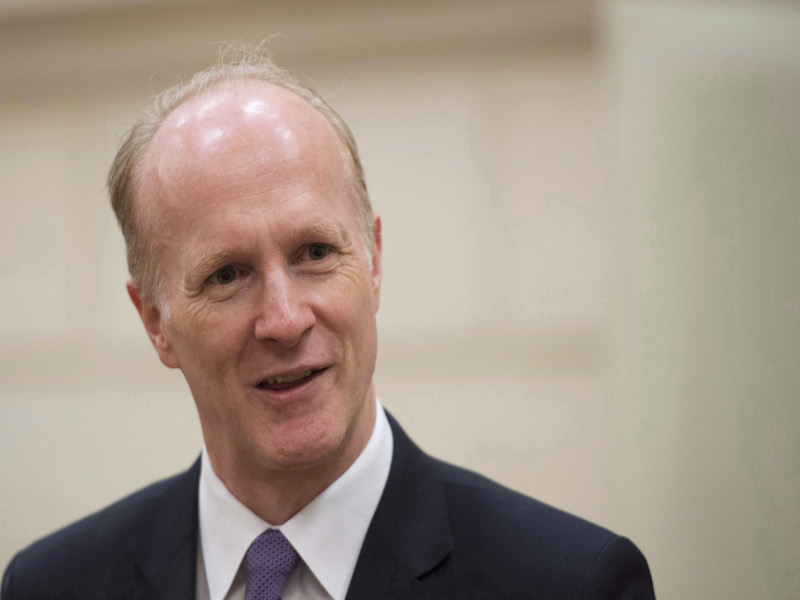

Despite the political noise around the globe, underlying economies are in pretty good shape and virtually every asset class is seeing high prices, according to the Canada Pension Plan Investment Board’s president and chief executive officer.
“I’m worried that everything is expensive. That’s the main thing,” said Mark Machin, speaking at an Economic Club of Canada event in Toronto on Monday.
“There’s a huge amocunt of liquidity and money in the world, so just about every asset class is expensive,” he added.
And a major concern for the CPPIB is limited supply amid stretched valuations, said Machin, suggesting infrastructure as an example. “One of the frustrating things about infrastructure is there’s not enough supply and there’s an increasing amount of money in the world chasing infrastructure investments. And there’s just not that much that’s ready to invest in.”
The lack of supply is leading investors to pick existing infrastructure investments with very poor returns, he added. “There’s just so much liquidity that it’s difficult to find things that actually have value. So I worry about chasing things that are too expensive.”
However, Machin noted one of the advantages the CPPIB has over individual investors is that it’s able to make investments at opportune times. “We all do it as individuals. We tend to panic as things go down and get euphoric as things go up, so we’re very pro-cyclical as individual investors,” he said.
“So you have to put in place these structural protections as long-term institutional investors to stop that kind of behaviour. We’re doing the opposite, buying when things are cheap and selling when things are expensive.”
One of Machin’s lessons for other investors is to have a properly diversified portfolio across asset classes and geographies. Diversification for the CPPIB means investing in a lot of private assets. “About half of the portfolio is in what we characterize as private assets,” he said, referring to about $50 billion in global real estate, $30 billion in infrastructure, as well as significant investments in private equity and some private credit.
In terms of diversifying geographically, Machin described opportunities in emerging markets, predominantly China, India and Brazil. “We’re very targeted on those countries. Currently, our portfolio is about 12 per cent to emerging markets. That will increase over the next five years to probably over 20 per cent, I’d imagine,” he said, noting that will be partly due to the continuing growth of the Chinese and Indian economies.
“We anticipate by 2026, China will overtake the U.S. in overall size of economy. So in picking those three — China, India and Brazil — [they’re] massive markets . . . but tricky territory, because you have to be careful about what people you’re doing business with. You have to be careful to really understand what you’re dealing with . . ..”
